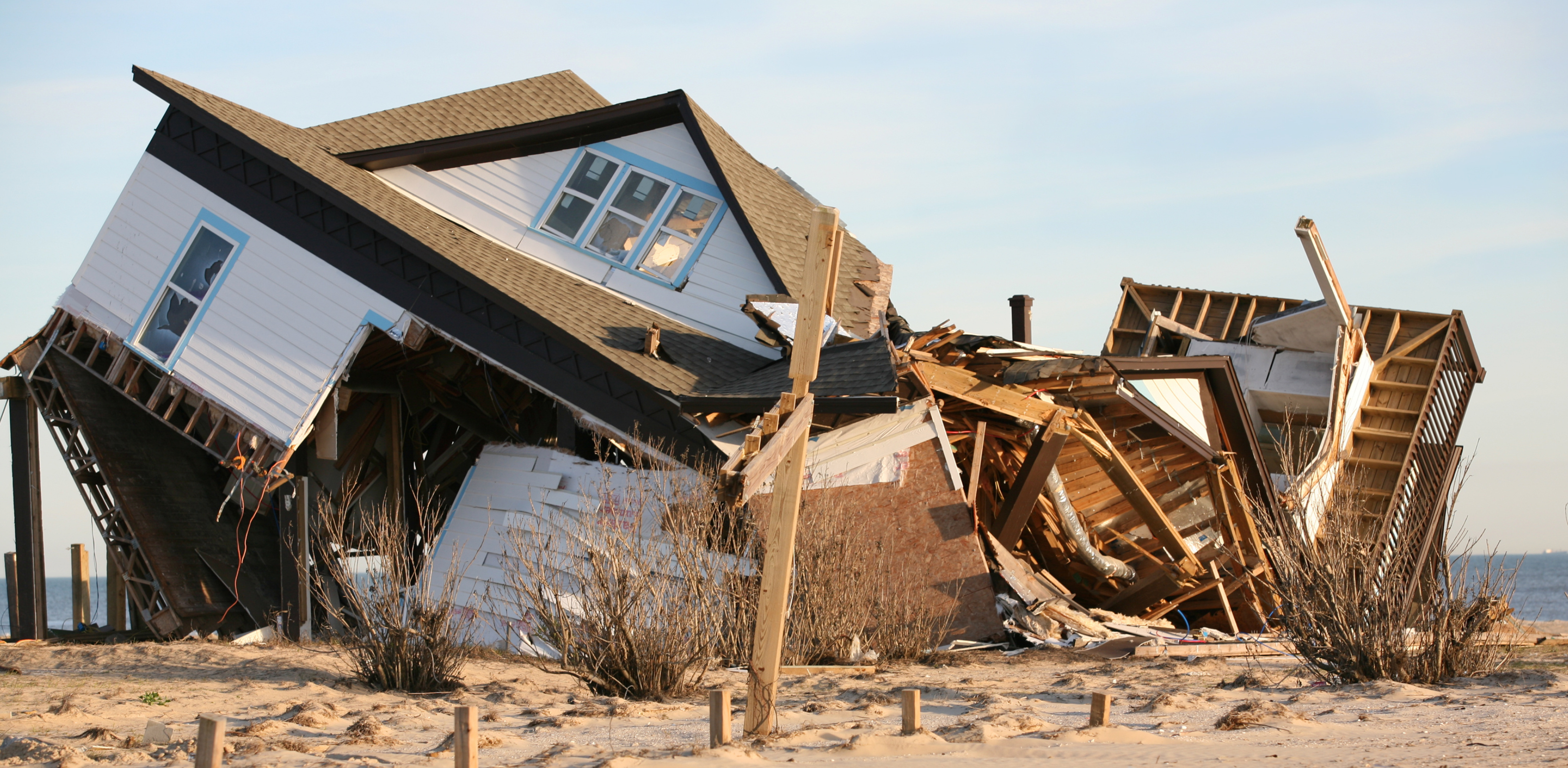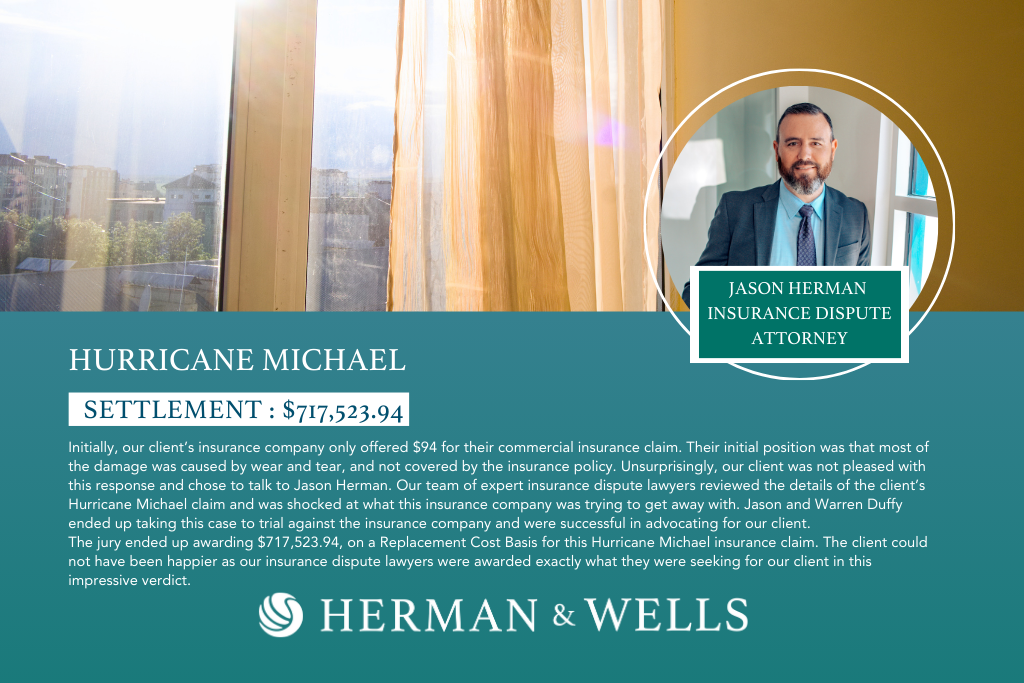Hurricane Prep Guide For Florida Homeowners
“It was a great pleasure having Cory Powell representing us after Hurricane Ian. This was an extremely emotional and physical hard time for us. Mr. Powell stepped up in every way possible to assure us we were in good hands. Many of our friends went on their own to file their insurance claims and know now they should of used a lawyer. I would highly recommend Mr. Powell and their firm for representation.”
Adan V
Contact us for a free case evaluation
By submitting my data I agree to be contacted
TABLE OF CONTENTS
- WHAT TO DO BEFORE A HURRICANE IN FLORIDA
- WHAT TO DO DURING A HURRICANE
- HOW A HURRICANE CAN DAMAGE YOUR PROPERTY
- WHAT TO DO AFTER A HURRICANE
- WHAT HOME INSURANCE TYPICALLY COVERS IN FLORIDA
- WHAT TO EXPECT AFTER FILING A HURRICANE DAMAGE CLAIM
- SHOULD YOU HIRE AN INSURANCE DISPUTE ATTORNEY AFTER A HURRICANE?
- CONTACT OUR FLORIDA HURRICANE DAMAGE LAWYERS
WHAT HAPPENED?
As Floridians and homeowners, we understand the stress and anxiety of dealing with hurricane damage. You can trust our team to guide you every step of the way from reviewing the damage to your home to helping you understand your options. This guide will help prepare you for what to do in the event of a hurricane in order to best mitigate damage and prepare for insurance.
THE CLIFF NOTES
Get the key takeaways from this page
THE CLIFF NOTES
Get the key takeaways from this page

- Take hurricanes seriously by preparing in advance with supplies, evacuation plans, and documentation to mitigate potential damage and hassle.
- If you remained in an evacuation zone, prioritize safety by staying indoors away from windows, as rescue workers may not be available for assistance, and avoid driving due to the dangers of wind and water.
- Prepare for potential damages during a hurricane, including wind damage such as flying debris and roof destruction, as well as water damage from flooding, and take preventive measures to protect your property and belongings.
- After evacuating, inspect your home for downed trees, power lines, and structural damage, and if it seems unsafe, avoid staying until it’s cleared.
- Check your homeowner’s insurance for coverage, typically including hurricane wind damage but often requiring separate flood insurance for flood-related damages; anticipate potential disputes over claims, emphasizing the importance of documentation.
- If you’re dissatisfied with your insurance settlement after a hurricane, contact Herman & Wells at (727) 821-3195; we’ll fight to ensure you receive the compensation you deserve, with no payment unless we win your case.
WHAT TO DO BEFORE A HURRICANE IN FLORIDA
Don’t take hurricanes lightly. While hurricanes vary in strength, you never know exactly what may happen during the storm. There are basic things you can do to prepare for the hurricane season that will save you in the long run. A little prior planning can prevent a lot of hassle.
- Stock up with supplies ahead of time
- Collect sandbags in your shed or garage
- Buy wood to board up windows
- Create an effective evacuation plan
- Gather important documents
- Stock up with supplies ahead of time
- Collect sandbags in your shed or garage
- Buy wood to board up windows
- Create an effective evacuation plan
- Gather important documents
Prepare yourself in advance. Don’t wait until a notice of an impending hurricane hits the news. By that time, you’ll be competing against hundreds of others who have not done any pre-hurricane prep and resources can quickly become scarce.
Along with preparing for the hurricane, get ready for what you will need after. Take photos and videos of your property to document your belongings before the hurricane to show direct damage that was caused to them by the storm.
WHAT TO DO DURING A HURRICANE
If you were in an evacuation zone, hopefully, you are somewhere safe with family or friends. If you stubbornly decided to stay, be careful. Don’t open doors or windows. Find a secure area in your house away from windows and wait out the storm. If you stayed in an evacuation area, rescue workers are not responsible for helping you if you are in danger.
Stay off the roads. Do not underestimate the power of wind and water. You can easily lose control of your vehicle during a storm. You put yourself and others at risk as you may need someone to come save you if you get into an accident or your car floods.
HOW A HURRICANE CAN DAMAGE YOUR PROPERTY
During a hurricane, there is little you can do except sit and wait it out. Make sure you are aware of the different ways a hurricane can damage your property and how to best protect your home and belongings.
Wind Damage
In a hurricane, wind speeds can range from 74 mph to a massive 157+ mph. Wind can easily pick up loose debris and send it crashing into your property. At higher speeds, objects such as a thin plank of wood can impale trees. Broken windows, dented cars, and more can result from flying objects caught up in the high winds. Higher winds can also uproot and knock over trees that may crash onto your home or car. We’ve even seen entire walls pushed over by hurricane-force winds.
Higher category hurricanes can decimate roofs, framed structures, and mobile homes. A house stripped of its roof is then vulnerable to the cascading rains which result in large amounts of water damage. In the most unfortunate of circumstances, a house with a weak roof can be utterly destroyed.
Protecting Your Florida Home Against Wind Damage
Be sure to secure any loose objects around your property or bring them inside. A heavy grill might seem sturdy, but it can become a very dangerous object with enough wind. Even if you secure loose objects around your property, the wind might still carry debris from other properties. Putting up shutters or boarding windows can prevent windows breaking and the wind and rain getting inside of your property.
Water Damage
The constant heavy downpour of a hurricane can cause flooding. Intense flooding can seep into a poor foundation or flood a car causing a great amount of damage.
In areas such as Florida, coastal flooding from storm surges can result in catastrophic damage. While Hurricane Katrina was only a category 3, the storm surge made it the most costly hurricane ever.
Protecting Your Florida Home Against Water Damage
If your property is at risk of flooding, pack all essential valuables (important documents and cherished belongings) and evacuate. If you have a second floor, you can move furniture upstairs to prevent the risk of water damage. Flooding can cause many problems so make sure your home has been deemed safe by authorities before reentering.
Use plastic sheeting and sandbags to build up protection in front of doors and other access points into your house. These will act as a barrier between the flooding waters and the inside of your house.

WHAT TO DO AFTER A HURRICANE
When returning to your home after evacuating, keep an eye out for downed trees and power lines. The hurricane may have also caused structural damage to your property. If you feel that your home may be unsafe, do not stay there until it has been properly examined and cleared.
WHAT TO DO AFTER A HURRICANE
When returning to your home after evacuating, keep an eye out for downed trees and power lines. The hurricane may have also caused structural damage to your property. If you feel that your home may be unsafe, do not stay there until it has been properly examined and cleared.
While it’ll take time to recover, with money from the insurance you’ll eventually be back on your feet. But what if you have problems with your claim? What if insurance denies your claim or they offer less than you expected? The last thing you want to be dealing with after a hurricane is fighting an insurance company. We can help with that.
WHAT HOME INSURANCE TYPICALLY COVERS IN FLORIDA
Read through your homeowner’s insurance policy to see what all it covers. Most homeowner’s insurance policies will cover damage caused by hurricane winds, but will not cover damage from flooding from heavy rains or coastal surge if the water comes in from the ground as opposed through your roof or a broken window. If you live in an area at risk for flooding, you will also want flood insurance. Many flood insurance policies have a 30-day period between when you purchase the insurance and when it is effective so be sure to get it as soon as you can.
WHAT TO EXPECT AFTER FILING A HURRICANE DAMAGE CLAIM
Most insurance policies in Florida come with high hurricane deductibles. After making an insurance claim for hurricane damage, many property owners will receive a letter from the insurance company that says that nothing is owed because the cost to repair is less than the hurricane deductible. In our experience, many of those initial insurance company assessments are wrong.
Sometimes insurance companies deny claims they shouldn’t. They’ll argue that there was no “wind-created opening” in the building and that your policy doesn’t cover the damage. They’ll try to deny that the damage wasn’t a result of the hurricane, which is why it is imperative to visually document your property before and after the storm. It’s important to get an attorney to support you during this stressful time and help you recover the proper compensation. Don’t let a denied claim ruin your life.

SHOULD YOU HIRE AN INSURANCE DISPUTE ATTORNEY AFTER A HURRICANE?
Many of our clients called us because they felt their insurance company did not offer enough money to cover the costs of repairing the damage to their home and property. Insurance companies are dealing with thousands of cases and will try to settle for a lower amount than what you deserve. They’ll argue that the damage is not covered by your policy.
If you hear back from your insurance company that you aren’t entitled to any more money, don’t give up. We are experts in getting what you deserve for your hurricane claim.
CONTACT OUR FLORIDA HURRICANE DAMAGE LAWYERS
If you feel like you might have been underpaid for your hurricane damage, please contact us or call (727) 821-3195. We’ll evaluate whether your insurance company may be responsible for paying more for your damage.
There is no risk; you only pay if we win compensation for your case. We’ll end the frustrations with your insurance company and help get your life back on track.
CONTACT OUR FLORIDA HURRICANE DAMAGE LAWYERS
If you feel like you might have been underpaid for your hurricane damage, please contact us or call (727) 821-3195. We’ll evaluate whether your insurance company may be responsible for paying more for your damage.
There is no risk; you only pay if we win compensation for your case. We’ll end the frustrations with your insurance company and help get your life back on track.
By submitting my data I agree to be contacted

